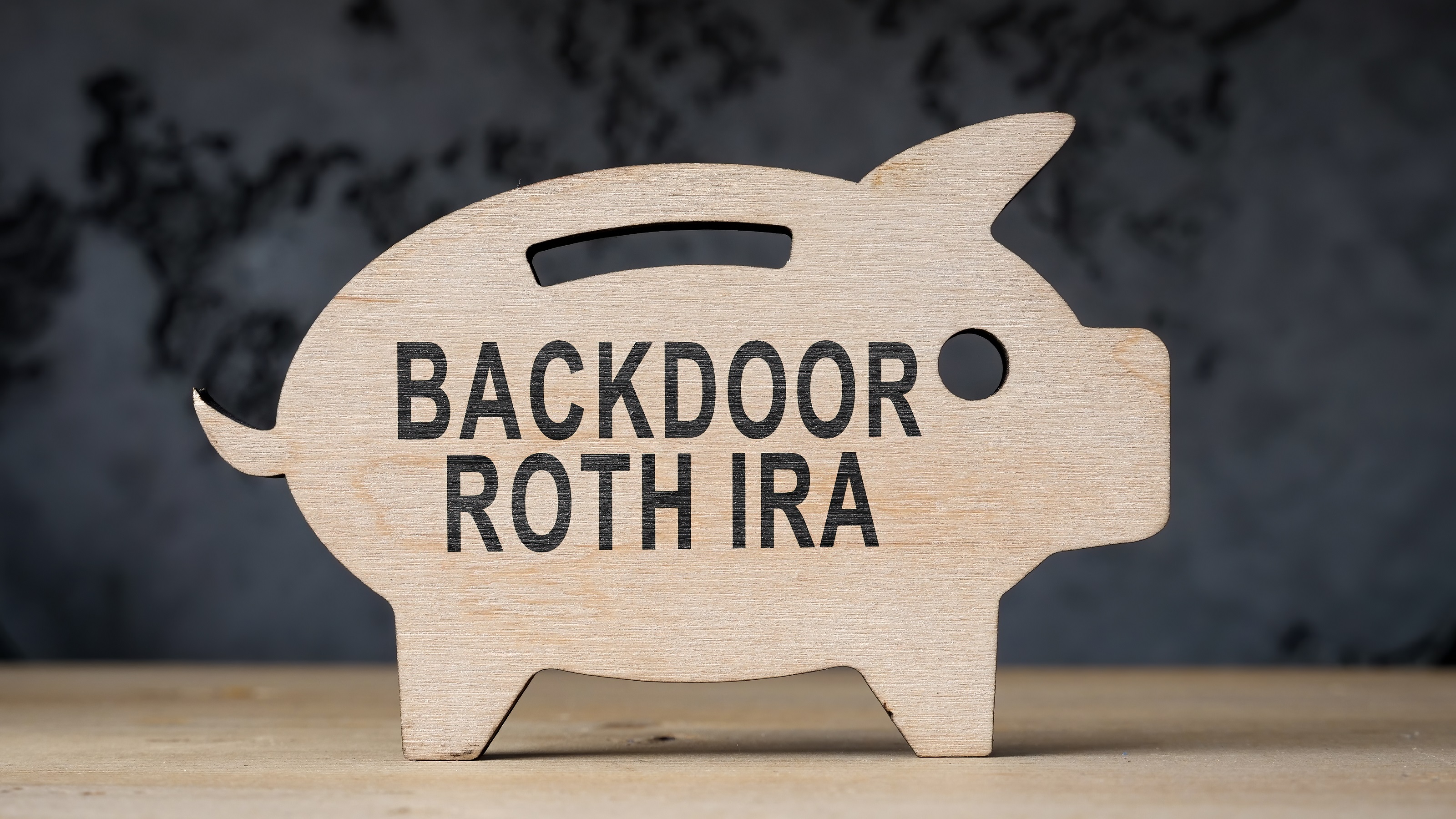Financial Planning for Singles
Six basic rules to help you secure your future.

Profit and prosper with the best of Kiplinger's advice on investing, taxes, retirement, personal finance and much more. Delivered daily. Enter your email in the box and click Sign Me Up.
You are now subscribed
Your newsletter sign-up was successful
Want to add more newsletters?

Delivered daily
Kiplinger Today
Profit and prosper with the best of Kiplinger's advice on investing, taxes, retirement, personal finance and much more delivered daily. Smart money moves start here.

Sent five days a week
Kiplinger A Step Ahead
Get practical help to make better financial decisions in your everyday life, from spending to savings on top deals.

Delivered daily
Kiplinger Closing Bell
Get today's biggest financial and investing headlines delivered to your inbox every day the U.S. stock market is open.

Sent twice a week
Kiplinger Adviser Intel
Financial pros across the country share best practices and fresh tactics to preserve and grow your wealth.

Delivered weekly
Kiplinger Tax Tips
Trim your federal and state tax bills with practical tax-planning and tax-cutting strategies.

Sent twice a week
Kiplinger Retirement Tips
Your twice-a-week guide to planning and enjoying a financially secure and richly rewarding retirement

Sent bimonthly.
Kiplinger Adviser Angle
Insights for advisers, wealth managers and other financial professionals.

Sent twice a week
Kiplinger Investing Weekly
Your twice-a-week roundup of promising stocks, funds, companies and industries you should consider, ones you should avoid, and why.

Sent weekly for six weeks
Kiplinger Invest for Retirement
Your step-by-step six-part series on how to invest for retirement, from devising a successful strategy to exactly which investments to choose.
The August issue of Kiplinger's Personal Finance has advice to help couples who can't wed (or choose not to) customize their tax and estate planning. Finance Basics for Partners has tips on how unmarried couples can handle everything from property division to child custody to who makes end-of-life decisions.
It also offers these six rules to help singles plan their financial lives:
Protect income. Employer-paid disability insurance typically replaces 60% of your income, but you owe tax on the benefit. Aim to replace another 15% to 20% of your salary through individual coverage. See Why You Need Disability Insurance for more information.
From just $107.88 $24.99 for Kiplinger Personal Finance
Become a smarter, better informed investor. Subscribe from just $107.88 $24.99, plus get up to 4 Special Issues

Sign up for Kiplinger’s Free Newsletters
Profit and prosper with the best of expert advice on investing, taxes, retirement, personal finance and more - straight to your e-mail.
Profit and prosper with the best of expert advice - straight to your e-mail.
Cover future care. The median cost of a private room in a nursing home is now $206 a day, according to Genworth Financial, and the price is expected to rise rapidly. Pick up a long-term-care policy with inflation to help cover the costs (see Long-Term Care You Can Afford).
Choose a wingman. Use the appropriate legal documents to assign your health-care power of attorney, which lets your representative make medical decisions for you if you cannot, as well as your durable power of attorney, which gives your representative the authority to make financial decisions on your behalf. If you have minor children, you will need to nominate a guardian for them in a legally executed will. (If you don't have children, see this advice on turning to extended family, friends, neighbors or trusted advisers to make health-care and financial decisions in case you become incapacitated.)
Boost earning power. Your ability to earn money is your biggest asset, says Sheryl Garrett, of the Garrett Planning Network. Burnish your skills with professional training or by getting an advanced degree. See Grad Degrees From a Distance for information about getting your master's online.
Pump up retirement accounts. At a minimum, you should contribute enough to your 401(k) to get any company match. If you have cash to spare, set up a Roth IRA. You'll pay taxes on your contributions upfront, but your earnings will accumulate tax-free, and you won't owe taxes when you withdraw money in retirement (see Why You Need a Roth IRA).
Set up an emergency fund. Aim for enough money to cover your expenses for at least six months or, in this uncertain job market, even a year (see How Much Cash You Really Need).
Profit and prosper with the best of Kiplinger's advice on investing, taxes, retirement, personal finance and much more. Delivered daily. Enter your email in the box and click Sign Me Up.

Award-winning journalist, speaker, family finance expert, and author of Mom and Dad, We Need to Talk.
Cameron Huddleston wrote the daily "Kip Tips" column for Kiplinger.com. She joined Kiplinger in 2001 after graduating from American University with an MA in economic journalism.
-
 Betting on Super Bowl 2026? New IRS Tax Changes Could Cost You
Betting on Super Bowl 2026? New IRS Tax Changes Could Cost YouTaxable Income When Super Bowl LX hype fades, some fans may be surprised to learn that sports betting tax rules have shifted.
-
 How Much It Costs to Host a Super Bowl Party in 2026
How Much It Costs to Host a Super Bowl Party in 2026Hosting a Super Bowl party in 2026 could cost you. Here's a breakdown of food, drink and entertainment costs — plus ways to save.
-
 3 Reasons to Use a 5-Year CD As You Approach Retirement
3 Reasons to Use a 5-Year CD As You Approach RetirementA five-year CD can help you reach other milestones as you approach retirement.
-
 10 Retirement Tax Plan Moves to Make Before December 31
10 Retirement Tax Plan Moves to Make Before December 31Retirement Taxes Proactively reviewing your health coverage, RMDs and IRAs can lower retirement taxes in 2025 and 2026. Here’s how.
-
 The Rubber Duck Rule of Retirement Tax Planning
The Rubber Duck Rule of Retirement Tax PlanningRetirement Taxes How can you identify gaps and hidden assumptions in your tax plan for retirement? The solution may be stranger than you think.
-
 What Does Medicare Not Cover? Eight Things You Should Know
What Does Medicare Not Cover? Eight Things You Should KnowMedicare Part A and Part B leave gaps in your healthcare coverage. But Medicare Advantage has problems, too.
-
 QCD Limit, Rules and How to Lower Your 2026 Taxable Income
QCD Limit, Rules and How to Lower Your 2026 Taxable IncomeTax Breaks A QCD can reduce your tax bill in retirement while meeting charitable giving goals. Here’s how.
-
 Estate Planning Checklist: 13 Smart Moves
Estate Planning Checklist: 13 Smart Movesretirement Follow this estate planning checklist for you (and your heirs) to hold on to more of your hard-earned money.
-
 Backdoor Roth IRAs: Good for Wealthy Retirees?
Backdoor Roth IRAs: Good for Wealthy Retirees?Financial Planning A backdoor Roth IRA is a tax loophole that enables wealthier individuals to earn tax-free income. But it's complicated.
-
 Buying Annuities in Your 401(k)
Buying Annuities in Your 401(k)Financial Planning More plans are offering annuities that could provide income in retirement. Here’s what you need to know.
-
 Smart Strategies for Couples Who Run a Business Together
Smart Strategies for Couples Who Run a Business TogetherFinancial Planning Starting an enterprise with a spouse requires balancing two partnerships: the marriage and the business. And the stakes are never higher.